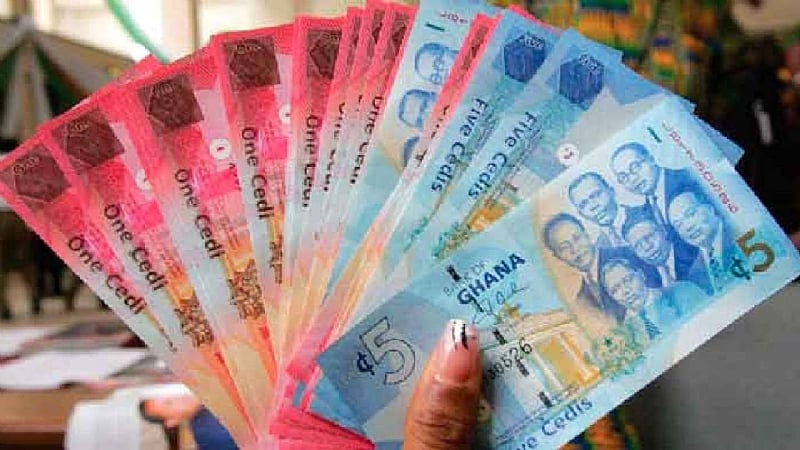The Ghanaian Cedi (GHS) has experienced a notable depreciation against the United States dollar as of Monday, October 14, 2024. Data from Cedirates.com highlights that the Cedi’s buying rate decreased by 4 pesewas, landing at GHS15.84, while its selling rate fell by 1 pesewa to GHS16.32 compared to the previous day. This depreciation indicates ongoing challenges for the Cedi as it struggles against major foreign currencies. The interbank exchange rates portray a similar trend, with the Cedi trading at GHS15.89 for purchasing and GHS15.91 for selling. These figures reflect a wider concern regarding the Ghanaian economy and its ability to stabilize its currency amid external pressures.
In addition to the US dollar, the Cedi’s performance against the British Pound Sterling and the Euro also warrants attention. Current average rates show that the buying and selling prices for the Pound Sterling are GHS20.58 and GHS21.38, respectively. On the interbank market, the selling price of the Pound is pegged at GHS20.80. For the Euro, the situational averages stand at GHS17.17 for buying and GHS17.93 for selling, while it is trading at GHS17.41 on the interbank market. These rates suggest a notable divergence in the Cedi’s value across different foreign currencies, which complicates the economic picture for both consumers and businesses in Ghana.
For those looking to remit money to Ghana from abroad, platforms like LemFi and Afriex are providing rates that are somewhat competitive in the current market. As of the latest updates, these services allow individuals to send money at rates of GHS15.87 for each dollar from the US and GHS15.42 from the UK. These figures highlight the ongoing importance of digital money transfer platforms for Ghanaians living abroad, as fluctuating currency rates significantly affect the amount family and friends receive in Ghanaian currency. Additionally, the services also offer rates for the Pound, with buying and selling rates positioned at GHS20.73 and GHS21.01, respectively.
Among these currency exchange dynamics, the performance of various online subscription services also plays a significant role. Those renewing American-based subscription services like Netflix, Spotify, or Apple Music using Visa or Mastercard will find themselves facing elevated costs with exchange rates at GHS17.09 and GHS17.11 for each US dollar. This increase in rates not only affects consumers directly but also highlights how foreign exchange rates impact the affordability of international digital goods and services in Ghana.
The relationship between the Cedi’s ongoing depreciation and the economic landscape of Ghana cannot be overlooked. As the currency weakens, various sectors including retail, services, and technology stand to feel the strain of increased operational costs. Consumers may find prices hiking for imported goods, while businesses that rely on imported materials will also have to adjust their pricing strategies. Essentially, the ripple effects of exchange rate fluctuations underscore the importance of maintaining a stable currency to foster economic growth and consumer confidence.
In conclusion, the Ghanaian Cedi’s recent depreciative trends against the US dollar, British Pound Sterling, and Euro not only reveal critical economic challenges but also imply broader implications for monetary policy and consumer behavior in Ghana. The ongoing adjustments in exchange rates showcase the vulnerabilities in the economy while emphasizing the significance of digital remittance platforms in mitigating the effects of currency fluctuations. As the nation navigates these economic hurdles, maintaining a close watch on currency trends will be essential for both consumers and policymakers alike.














